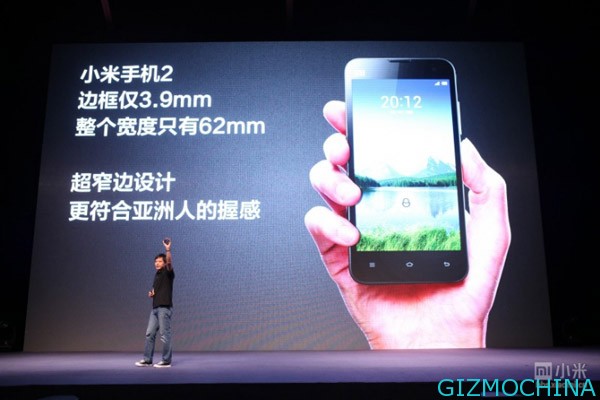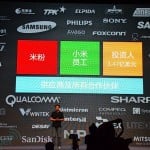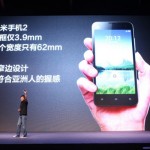The Xiaomi MI2 (小米手机2), loaded with Qualcomm’s quad-core Snapdragon S4 Pro chip, the APQ8064. It’s the first smartphone in the world to use this chipset and will run Android 4.1 (Jelly Bean).
After we have more news about Xiaomi MI2 yesterday, and now we have couple of pics that show from Xiaomi MI2 launch, as we all know Xiaomi is one of the Android mobile phone manufacturers are quite active in China. And this time, they introduced a new mobile phone, Xiaomi MI2.
Xiaomi MI2 packs with Android operating system Jelly Bean 4.1. On the inside, this phone offers quad-core Qualcomm’s processor, the Snapdragon APQ8064 S4 Pro with 1.5GHz speed.
Like the Samsung Galaxy S III, this phone was sold with Siri’s software is claimed to have achieved 85 percent accuracy rate. To support the performance of the processor, this phone comes with 2GB of RAM. Being for storage, 16GB of internal memory and there is a microSD slot that supports up to 32GB.
On the screen of this phone was not inferior to other high end Android phones. Xiaomi MI2 comes with a screen measuring 4.3 inches with a resolution of 1280 x 720 pixels and supports 16 million colors display. On the back, this phone also offers an 8MP camera with LED flash, autofocus and can record full HD (1080p).
Regarding the price, this phone will be sold with low enough price, just 1999 yuan or about $ 315 USD. Previously, co-founder Xiaomi been revealed that the cost to build this handphne is about 2350 yuan (370 USD).
Besides the announcement of the Xiaomi MI2, the company also announced a faster MI1S version of its original MI-ONE. The MI1S gets a slightly faster 1.7GHz dual-core processor, a camera that also uses the second-generation backside-illuminated (BSI) sensor as well as a F2.0 aperture. It is also even cheaper at just 1,499 Chinese yuan (US$235).
MI2 will be launched in October and that China Unicom and China Telecom “will be offering the DC-HSPA+ handset at subsidized prices”. But you can buy or pre-order for MI2 phone from Android-Sale.com
Pics: courtesy of Engadget China




































